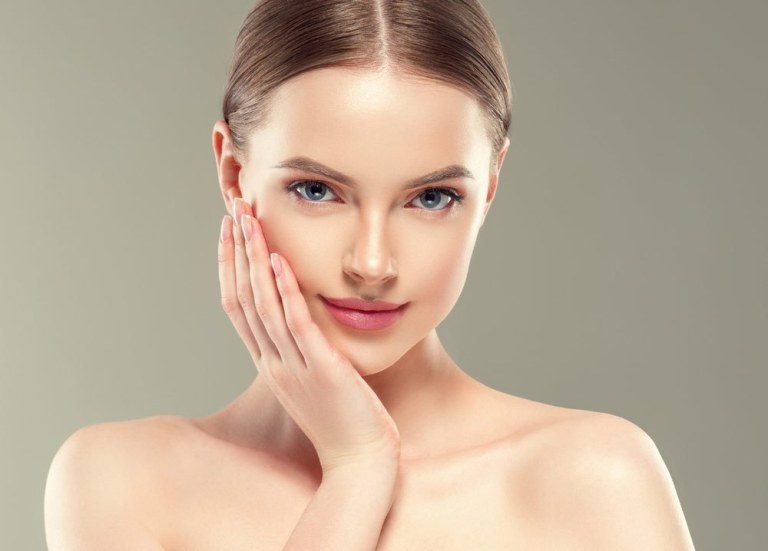Investigating the Emotional and Social Elements That Drive People to Think About Plastic Surgery as a Way of Improvement
The choice to pursue cosmetic surgical procedure typically expands beyond mere visual appeals, intertwining with social and psychological characteristics that merit detailed exam. Variables such as self-worth, pervasive social charm standards, and the prevalent impact of social media assemble to form specific motivations for medical improvement.
The Role of Self-Esteem
Self-esteem considerably affects a person's choice to seek cosmetic surgery. Individuals with reduced self-confidence typically perceive themselves in an adverse light, leading to sensations of inadequacy concerning their physical appearance. This unfavorable self-perception can drive them to look for surgical interventions as an approach of boosting their self-image. The desire for improvement in one's look is frequently linked to a belief that such modifications will raise their general self-worth and confidence.

Eventually, the duty of self-worth in the decision-making procedure regarding cosmetic surgical procedure highlights the complicated interaction in between body image, individual satisfaction, and mental wellness. Recognizing this connection is important for medical care professionals to make sure that people are making educated choices rooted in sensible expectations and emotional health.
Societal Elegance Specifications
Influenced by pervasive media portrayals and cultural stories, social beauty criteria play an important duty in forming people' perceptions of their very own bodies. These criteria are often identified by an idyllic kind of appeal that stresses qualities such as slimness, youthful vigor, and symmetry. As these suitables are bolstered via various channels, including tv, film, and advertising and marketing, individuals frequently internalize these messages, causing dissatisfaction with their all-natural appearance.
The effects of these social norms expand past visual preferences; they can impact self-worth, psychological health, and social partnerships. Individuals that perceive themselves as disappointing these requirements may experience sensations of insufficiency, prompting a wish for cosmetic surgical procedure as a way of achieving social approval. This search is commonly fueled by the idea that satisfying these perfects will improve not just physical appearance however additionally social standing and individual satisfaction.

Impact of Social Media Site
The influence of social beauty standards is additional amplified by the increase of social media platforms, where curated photos and idealized depictions of charm are ubiquitous. Users are frequently revealed to filtered and modified photos, which commonly depict unattainable physical features. This direct exposure grows a culture of comparison, leading people to evaluate their own look against these typically impractical standards.
Social network influencers and stars frequently promote cosmetic procedures, stabilizing the notion that surgical enhancements are a sensible means for achieving social ideals (plastic surgery rancho cucamonga). The presence of these enhancements can develop an assumption that going this content through plastic surgery is a typical method, consequently influencing individuals to think about comparable treatments as a pathway to enhanced self-confidence and social acceptance
In addition, the interactive nature of social media sites enables immediate responses through sort and comments, further enhancing the wish to adapt popular elegance standards. Such interactions can aggravate feelings of inadequacy and drive people toward plastic surgery as a way of gaining validation. Eventually, social media sites plays an essential role fit perceptions of charm, which significantly affects the decision-making processes surrounding plastic surgery.

Cultural Point Of Views on Look
Throughout different cultures, assumptions of appearance are deeply rooted in historical, social, and financial contexts, forming people' views on beauty and charm. In several cultures, look serves as a significant marker of identification, affecting social status, specialist opportunities, and individual relationships. For example, in some societies, light skin is typically associated with riches and Our site benefit, while others may glorify darker skin tones as signs of stamina and authenticity.
Furthermore, traditional elegance criteria are usually continued with cultural narratives, media depictions, and household affects, leading to differing ideals across various areas (plastic surgery rancho cucamonga). In Western cultures, the focus on youth and physical conditioning frequently drives individuals towards cosmetic enhancement, while in particular Eastern cultures, more refined adjustments straightened with typical visual appeals might be chosen
Globalization and the proliferation of digital media have better made complex these dynamics, creating a hybridization of charm suitables that transcends geographical borders. As people significantly navigate these cultural stories, the pressure to conform to details look criteria can cause the desire for plastic surgery, reflecting an intricate interaction of personal desires and cultural worths. Comprehending these social point of views is important in dealing with the motivations behind cosmetic surgery considerations.
Emotional Effects of Aesthetic Surgery
Several people seeking cosmetic surgery report experiencing extensive emotional effects that can substantially modify their self-perception and emotional wellness - plastic surgery rancho cucamonga. The desire for physical enhancement commonly stems from underlying issues such as reduced self-confidence, body dysmorphic condition, or societal stress relating to elegance criteria. For some, the immediate post-operative phase can result in a temporary boost in self-esteem and fulfillment with their look, fostering a feeling of empowerment
Nevertheless, these positive feelings might not be withstanding. Research shows that while some patients experience improved self-confidence, others may encounter heightened stress and anxiety or clinical depression if their expectations are not fulfilled. This discrepancy can arise from impractical suitables continued by media depiction and social narratives bordering appeal.
Additionally, the mental implications of plastic surgery prolong beyond the individual. Relationships with friends and family might be stressed as social dynamics shift, bring about sensations of isolation or alienation. Eventually, the emotional impacts of plastic surgery are complicated and diverse, calling for cautious consideration by both prospective people and doctor to make sure enlightened decision-making and reasonable expectations.
Conclusion
Finally, the choice to pursue plastic surgery is significantly influenced by a combination of self-confidence issues, societal see post charm standards, and social perspectives on appearance. The prevalent reach of social media sites better worsens these stress, promoting unrealistic ideals that individuals commonly aim to obtain. Comprehending these social and mental elements is necessary for addressing the motivations behind cosmetic surgical procedure, highlighting the requirement for a more nuanced conversation surrounding beauty and self-acceptance in modern culture.
The choice to pursue cosmetic surgery commonly prolongs beyond mere aesthetics, linking with social and emotional characteristics that warrant complete assessment. Eventually, social media plays a critical function in forming perceptions of charm, which considerably impacts the decision-making processes bordering cosmetic surgery.
As individuals progressively navigate these social narratives, the stress to conform to details appearance standards can lead to the need for cosmetic surgical treatment, reflecting a complex interaction of social values and individual ambitions.In conclusion, the choice to seek cosmetic surgical procedure is dramatically affected by a combination of self-esteem problems, social elegance standards, and social perspectives on appearance. Understanding these mental and social variables is vital for dealing with the motivations behind cosmetic surgical treatment, highlighting the requirement for a more nuanced conversation bordering appeal and self-acceptance in contemporary society.